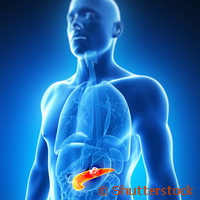Pancreatic cancer: tackling the tumour by targeting its surroundings
With fewer than 5 percent of sufferers surviving beyond five years of diagnosis, pancreatic cancer is one of the most lethal of all cancers. Late diagnosis is one reason for these statistics, but so is the aggressive nature of the tumour and its resistance to the drugs used during chemotherapy. An array of chemotherapy drugs and molecular targeted therapies have succeeded in slowing or stopping tumour growth in cell culture and mouse experiments, but they have failed to have any impact in patients with pancreatic cancer taking part in clinical trials. The EPC-TM-NET ('Targeting the tumour microenvironment to improve pancreatic cancer prognosis') project is tackling the disease from a different angle. Instead of focusing on the tumour itself, the team is using its EUR 3 million grant from the EU's Seventh Framework Programme (FP7) to study the microenvironment surrounding the tumour. Recent research has shown that a tumour's microenvironment, including blood vessels, connective tissue and a variety of other cells, play a major role keeping tumour cells under control. Solid cancerous tumours found in the pancreas tend to be surrounded by very high levels of desmoplasia - fibrous or connective tissues. This, in addition to evidence that having chronic inflammatory pancreatic disease increases the risk of developing pancreatic cancer, indicates to scientists that the tumour microenvironment is of particular importance for the spread of cancer in the pancreas. The hope is that by understanding how the tumour's microenvironment is causing the failure of oncological treatments, the EPC-TM-NET team will be able to increase the survival rate of pancreatic cancer patients. The team is using innovative in-vitro and mouse models that closely mimic the human disease to see exactly what happens when treatment fails. They will get a much clearer picture of the mechanics involved in the complex network between the microenvironment's components and cancer cells, their resistance to chemotherapy, and how the cancer spreads. There has also been a study on the effect of smoking (smoke exposure) and chronic pancreas inflammation on the tumour progression using mouse models. Once the team has identified the stromal cells (connective tissue) that mediate the spread of cancer and chemoresistance, they will be able to pinpoint novel drug targets. The EPC-TM-NET team brings together researchers from Germany (Philipps Universität Marburg, coordinating), Italy, Spain, Sweden and the UK. The clinical groups involved have expertise in pathology, gastrointestinal oncology and surgical oncology, while the pharmaceutical companies are specialised in drug development.For more information, please visit: EPC-TM-NET http://epcnet.eu/ Project factsheet
Countries
Germany, Spain, Italy, Sweden, United Kingdom



